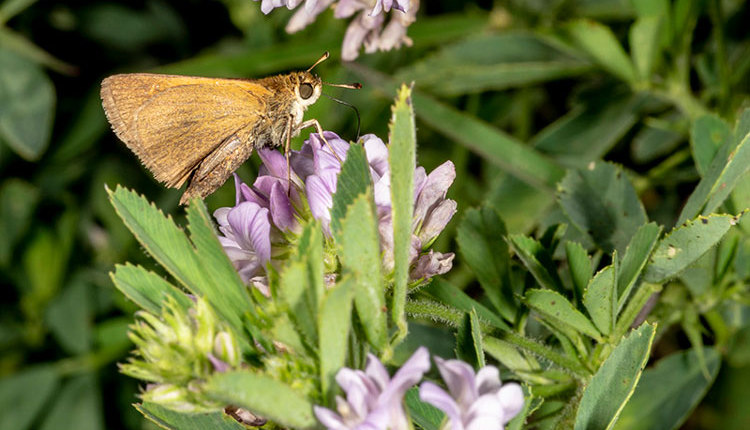Newly updated edition of Purdue Forage Field Guide provides essential information on forage management |
|
|
This item has been supplied by a forage marketer and has not been edited, verified or endorsed by Hay & Forage Grower. A skipper rests on the flower of an alfalfa plant, one of many forage species covered in the newly updated fourth edition of the Purdue Extension Forage Field Guide. The pocket guide covers all the vital information that forage producers need, including pest information, soil fertility, animal nutrition and more. Purdue University photo/John Obermeyer The fourth edition of the Forage Field Guide from Purdue University Extension is now available for purchase on the Extension Education Store website. Created for livestock producers and the agricultural industries that serve them, the pocket guide is a valuable resource on navigating forage management. Notable guide updates include higher quality photographs, added information to the soil fertility section, new information related to corn production and when it is to be used as silage, and new pages on tar spot disease and the sugarcane aphid. Keith Johnson, professor of agronomy and guide co-author, said, “The Purdue Forage Field Guide is a 324-page pocket-size resource that should be in every forage-livestock producer’s work vehicle and on every agriculture industry professional’s desk or counter where business is done. If guidelines are followed, forage management practices should improve.” The guide was co-authored by faculty and Extension specialists who work with the Crop Diagnostic Training and Research Center, as well as external institutions and organizations. A complete list of authors can be found in the guide. Ronald Lemenager, professor of animal sciences, Extension beef specialist and guide co-author, emphasized, “If you have forages for pasture or hay, or you plan to grow forages, this guide contains invaluable information to make informed decisions.” |
